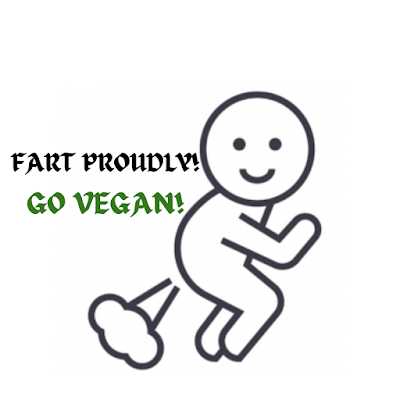In the area of unconventional scientific theories, few ideas are as intriguing as the potential benefits of inhaling flatulence for strengthening the immune system. This peculiar notion, though met with both amusement and skepticism, has been subject to serious investigation. As we embark on this olfactory odyssey, let us explore the connection between our sense of smell and immune resilience through a lens particularly relevant to the pre-vegan and vegan communities.
Franklin's Enlightenment
It is worth noting that Benjamin Franklin, in his characteristic pursuit of knowledge, touched upon the subject of diet and its impact on the human constitution. He advocated for a plant-based diet, a sentiment that resonates strongly with the ethos of the modern vegan movement. Franklin's wisdom laid the groundwork for a nutritional philosophy that aligns seamlessly with the principles of compassionate living and environmental stewardship.
The olfactory system, our exquisite instrument for perceiving the world, plays a pivotal role in the sensory experience of a vegan lifestyle. From the earthy scent of freshly harvested produce to the aromatic bouquet of simmering vegetable broth, our olfactory senses guide us through the vibrant tapestry of plant-based living. Within this symphony of scents, the humble flatulence, though often overlooked, holds its own unique place.
Gas-Induced Immunological Harmony
Emerging research suggests that the gases responsible for flatulence may harbor unexpected benefits, even within the context of a vegan diet. Compounds like hydrogen sulfide, prevalent in plant foods, have shown the potential to modulate cellular processes in ways that could enhance immune function. This intriguing revelation illuminates the symbiotic relationship between our bodies and the plant-based nutrients we consume.
A Whiff of Wellness
Before we embark on a quest to embrace flatulence as a cornerstone of our vegan journey, it is essential to approach this subject with a balanced perspective. Preliminary findings are just the initial steps in unraveling the potential benefits of this curious connection. Rather than advocating for indiscriminate inhalation, we encourage a thoughtful consideration of the broader implications. It is a call to recognize the intricacies of our own biology and the profound impact of our dietary choices.
Conclusion: A Symphony of Vegan Science and Wisdom
In the grand narrative of nutritional exploration, the theory linking flatulence to immune strength offers a unique perspective for the pre-vegan and vegan communities. It invites us to consider the multifaceted relationship between plant-based nutrition, our olfactory senses, and immune resilience.
With a nod to Benjamin Franklin's timeless insights, we embark on this journey, guided by the principles of compassion, sustainability, and the pursuit of a healthier, more resilient vegan future. So, let us, with a touch of humor, fart proudly in the name of scientific progress and vegan vitality.
Resources
Benjamin Franklin's Writings on Diet and Health:
- Franklin, B. (1758). Letter to Joseph Huey. Read here
- Franklin, B. (1780). The Works of Benjamin Franklin, Vol. X. Available online
Research on Hydrogen Sulfide and Immune Function:
- Furne, J., Springfield, J., Koenig, T., & DeMaster, E. (2001). Invited review: Hydrogen sulfide as a vasculotropic gas: role in health and disease. Journal of Applied Physiology, 90(6), 2200-2206. Read here
Olfactory System and Immune Response:
- Dando, R., & Pereira, E. (2019). The Taste and Smell of Misery: The Chemical Senses in Health and Disease. In: The Senses: A Comprehensive Reference, 2nd edition. Read here
Plant-Based Diet and Immune Function:
- Turner-McGrievy, G. M., & Barnard, N. D. (2008). Effects of a low-fat vegan diet and a Step II diet on macro- and micronutrient intakes in overweight postmenopausal women. Nutrition, 24(7-8), 664-671. Read here


Comments
Post a Comment
We welcome your input!